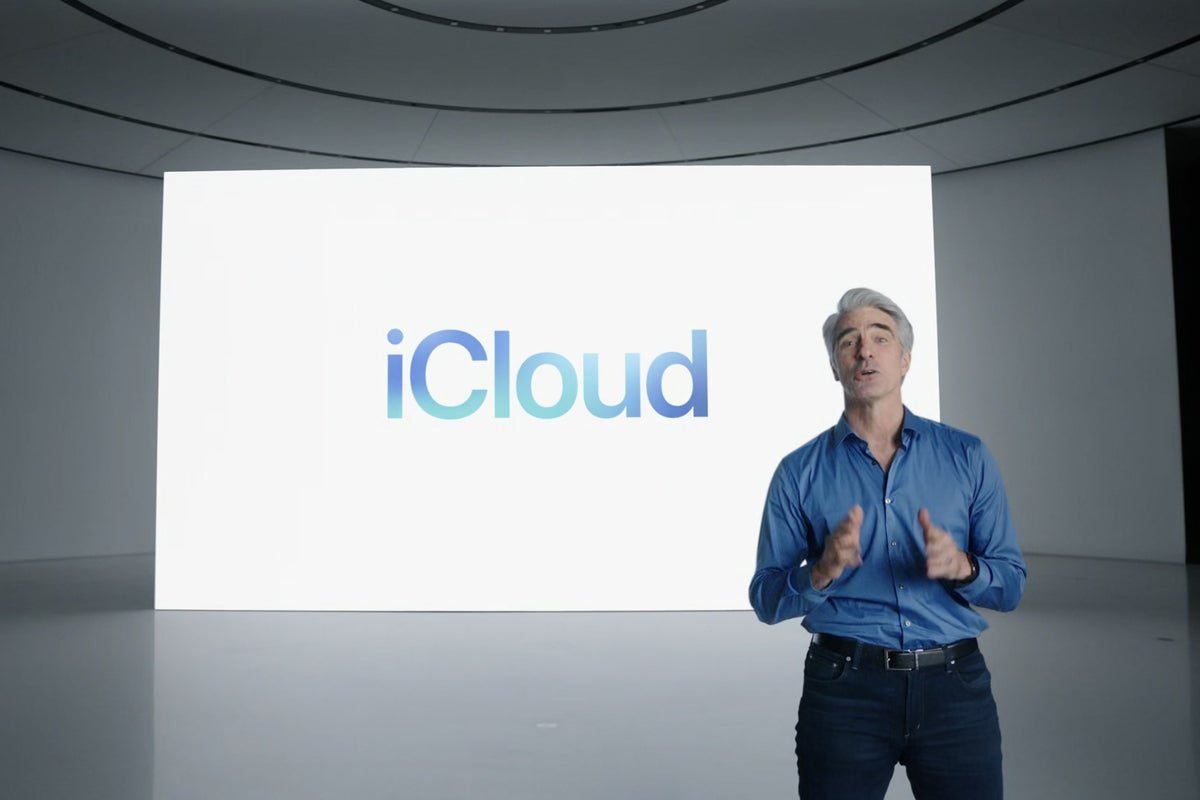
Si recibió un correo electrónico de Apple informándole que se actualizó a iCloud + sin costo adicional, no está solo. Entonces, ¿qué es iCloud +? ¿Qué obtienes y por qué deberías usarlo?</p><h2>¿Qué es iCloud +?</h2><p>Anunciado en WWDC 2021, iCloud + es un conjunto de servicios adicionales diseñados para complementar la funcionalidad existente del servicio en línea iCloud de Apple. A pesar del nombre, no cuesta más que antes, pero solo está disponible para suscriptores pagos. El nivel gratuito de 5 GB no se beneficia de estas funciones adicionales. El servicio actualizado agrega mejoras de seguridad útiles que incluyen iCloud Private Relay (aún en versión beta), Hide My Email y soporte mejorado para HomeKit Secure Video.
Why should you use iCloud +?
These new features are designed to ensure user safety. This security ranges from protecting Safari browsing sessions to ensuring that marketers cannot easily collect information about you. If you are concerned about your privacy, these features will be helpful to you. They can also have implications for businesses, while iCloud's custom domain tool should be useful for small business users.So what do you get? Let's dive into each component.
What is iCloud Private Relay?
Currently available in beta, iCloud Private Relay is a VPN-like service that protects you when you use Safari to browse online. It uses a double hop architecture. This means that the service encrypts Safari traffic as it leaves your device, thus protecting it from being read by others. It encrypts the URL so that no one, not your ISP or Apple, can see what site you're visiting. Your IP address and destination can be accessed using an intermediate relay station run by a "trusted external partner," according to Apple. It works in the following way:- Your requests are encrypted and sent through two separate internet relays;
- The first Apple-operated relay provides you with an anonymous IP address that matches your region, but not your location.
- The second third party relay decrypts it and takes it to the web address.
- This double-hop approach means that no one can see who a user is and which sites they choose to visit. Apple only sees the IP address that it requests, while third parties only see the website that it requests.
What is Hide my email?
This feature allows you to create random emails that are forwarded to your primary email address. This allows you to register online without having to share your real address. "Hiding my email also allows users to create and delete as many addresses as they need at any one time, giving users control over who can contact them," Apple said.- To use the feature, open Settings and tap on the Apple ID section at the top of the main menu. Then tap iCloud.
- In the next section, tap Hide my email, then choose Create new address.
- Give the address an identification label (for example, newsletters), tap Next, and then tap Done.
- A random email address will be created for you and you can access it in iCloud settings.
- Scroll down and you will see that you can also change the Forward to item to any address you own, including non-Apple addresses.
What is email privacy protection?
One of the new features in iCloud Mail, Mail Privacy Protection, prevents senders from using web beacons in emails to collect information about you. These are widely used to determine if emails have been opened or to identify IP addresses. Protection means that your IP address is random. While it is intended to prevent aggressive marketing, there are concerns that some newsletter publishers may be affected, although this may not be the case. To enable the setting, which is not enabled by default, go to Settings > Mail > Privacy Protection and enable the Protect email activity option.What is HomeKit Secure Video?
Announced last year, this feature allows you to connect compatible home security cameras to your Home app. Security video can be stored in iCloud at no additional cost, which means it's highly secure and accessible from anywhere using end-to-end encryption with a device registered to your Apple ID. The system is smart enough that if you have an Apple TV or HomePod, this device will try to analyze video footage to detect people, animals or vehicles that have been captured by the camera. The number of cameras you can add to your account is limited to none with a free account, one with a 50GB iCloud account, and five with a 200GB tier. If you want to add an unlimited number of cameras, you'll need a 2TB iCloud+ Account, which is now included in the Premier Apple One subscription. Apple One is Apple's all-in-one subscription service that offers access to Apple Music, TV+, Arcade and iCloud; Premier tier adds News+ and Fitness+What is a custom email domain?
This useful enhancement allows you to customize your iCloud email address with up to five domain names that you own. You can create up to three email addresses per domain, but you can't move a single email address to iCloud Mail and leave another for your ISP. If you use Family Sharing, up to five family members can also use this domain. The Smith family can use smithfamily.com as their domain (if available), for example. To use a domain with your iCloud account, you must update the MX, TXT, and CNAME records that your domain registrar maintains, as described in this Apple Support document.Has the Apple iCloud Mail web app been updated?
Indeed. Apple has updated the iCloud Mail web app accessible via iCloud.com. Apple made the app look more consistent with its current operating system layouts, and emails you compose now open in the same window. Finally, the company introduced an improved service to recover iCloud data if your password is lost. Follow me on Twitter or join me on the AppleHolic bar & grill and Apple discussion groups on MeWe.<p>Copyright © 2021 IDG Communications, Inc.</p>